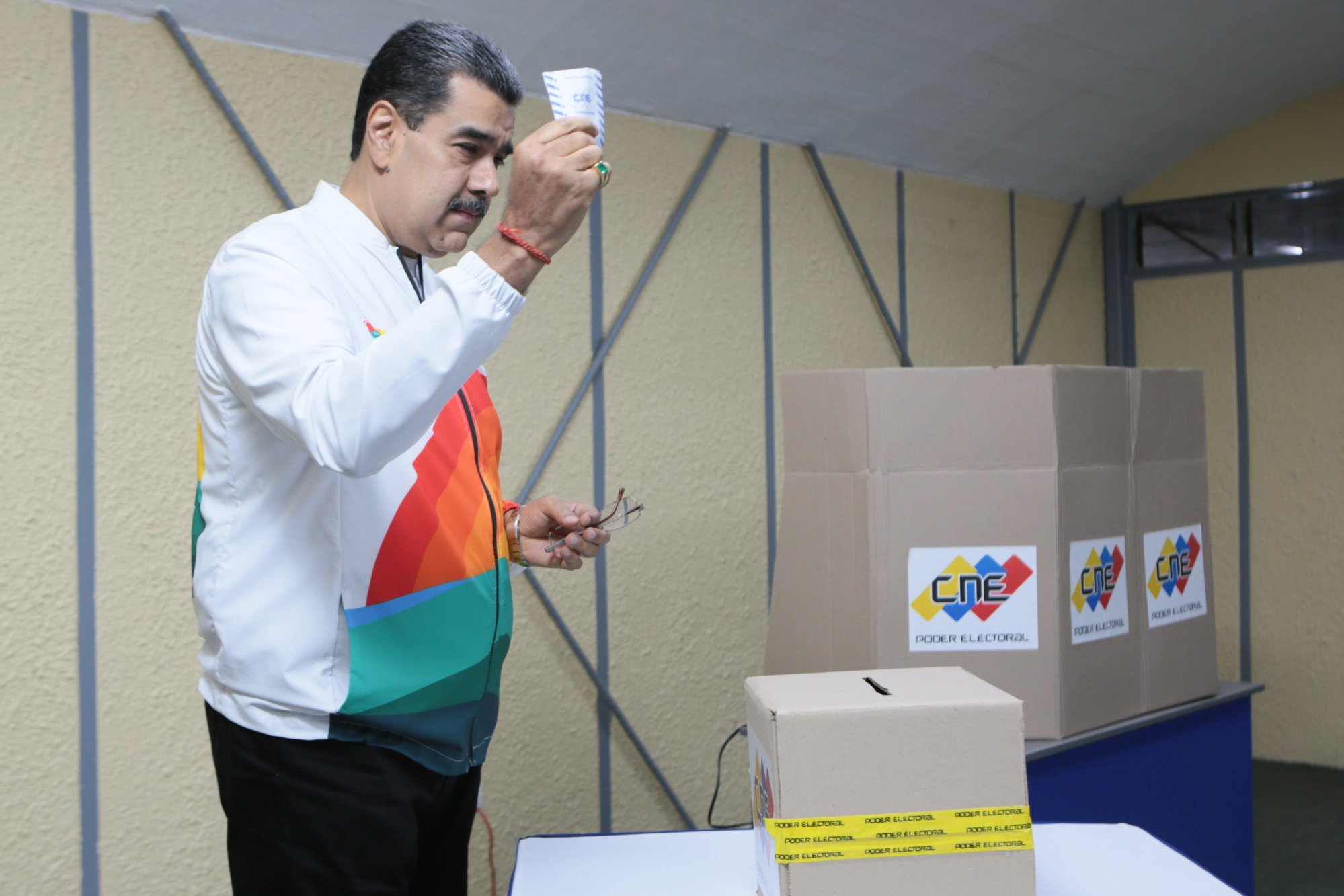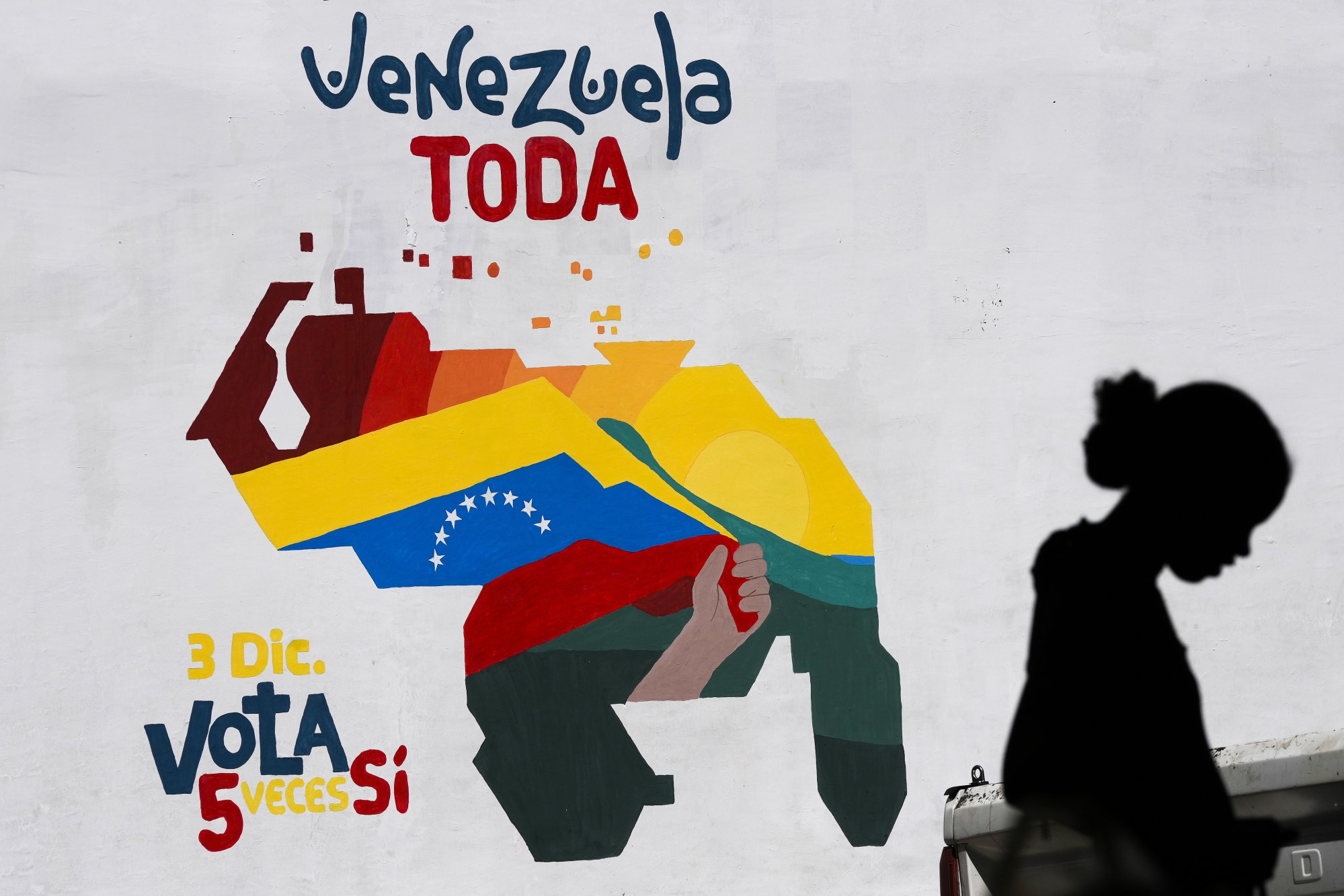The council, however, did not explain whether the number of votes was equivalent to each voter or if it was the sum of each individual answer.

Venezuelan voters were asked whether they support establishing a state in the disputed territory, known as Essequibo, granting citizenship to current and future area residents and rejecting the jurisdiction of the United Nations’ top court in settling the disagreement between the South American countries.
“It has been a total success for our country, for our democracy,” Maduro told supporters gathered in Caracas, the capital, after results were announced. He claimed the referendum had “very important level of participation”.
Venezuela’s top court suspends results of opposition presidential primary
Venezuela’s top court suspends results of opposition presidential primary
Yet long lines typical of electoral events did not form outside voting centres in Caracas throughout Sunday, even after the country’s top electoral authority, Elvis Amoroso, announced the 12-hour voting period would be extended by two hours.
If the participation figure offered by Amoroso refers to voters, it would mean more people voted in the referendum than they did for Hugo Chavez, Maduro’s mentor and predecessor, when he was re-elected in the 2012 presidential contest.
But if it is equivalent to each individual answer marked by voters, turnout could drop to as low as 2.1 million voters.
“I came to vote because Essequibo is ours, and I hope that whatever they are going to do, they think about it thoroughly and remember to never put peace at risk,” merchant Juan Carlos Rodríguez, 37, said after voting at a centre in Caracas where only a handful of people were in line.
The International Court of Justice on Friday ordered Venezuela not to take any action that would alter Guyana’s control over Essequibo, but the judges did not specifically ban officials from carrying out Sunday’s five-question referendum. Guyana had asked the court to order Venezuela to halt parts of the vote.
Although the practical and legal implications of the referendum remain unclear, in comments explaining Friday’s verdict, international court president Joan E. Donoghue said statements from Venezuela’s government suggest it “is taking steps with a view toward acquiring control over and administering the territory in dispute”.
“Furthermore, Venezuelan military officials announced that Venezuela is taking concrete measures to build an airstrip to serve as a ‘logistical support point for the integral development of the Essequibo,’” she said.

The 159,500 sq km territory accounts for two-thirds of Guyana and also borders Brazil, whose Defence Ministry last week in a statement said it has “intensified its defence actions” and boosted its military presence in the region as a result of the dispute.
Essequibo is larger than Greece and rich in minerals. It also gives access to an area of the Atlantic where energy giant ExxonMobil discovered oil in commercial quantities in 2015, drawing the attention of Maduro’s government.
Venezuela’s government promoted the referendum for weeks, framing participation as an act of patriotism and often conflating it with a show of support for Maduro.
The country has always considered Essequibo as its own because the region was within its boundaries during the Spanish colonial period, and it has long disputed the border decided by international arbitrators in 1899 when Guyana was still a British colony.
That boundary was decided by arbitrators from Britain, Russia and the United States. The US represented Venezuela on the panel in part because the Venezuelan government had broken off diplomatic relations with Britain.
Venezuela’s President Maduro seeks Chinese money to revive country’s oil sector
Venezuela’s President Maduro seeks Chinese money to revive country’s oil sector
Venezuelan officials contend that Americans and Europeans conspired to cheat their country out of the land and argue that a 1966 agreement to resolve the dispute effectively nullified the original arbitration.
Guyana, the only English-speaking country in South America, maintains the initial accord is legal and binding and asked the International Court of Justice in 2018 to rule it as such, but a decision is years away.
Voters on Sunday had to answer whether they “agree to reject by all means, in accordance with the law”, the 1899 boundary and whether they support the 1966 agreement “as the only valid legal instrument” to reach a solution.
Guyana President Mohamed Irfaan Ali on Sunday told Guyanese his government is working continuously to ensure the country’s borders “remain intact” and said people have “nothing to fear over the next number of hours, days, months ahead”.
“I want to advise Venezuela that this is an opportunity for them to show maturity, an opportunity for them to show responsibility, and we call upon them once more join us in … allowing the rule of law to work and to determine the outcome of this controversy,” Ali said.

